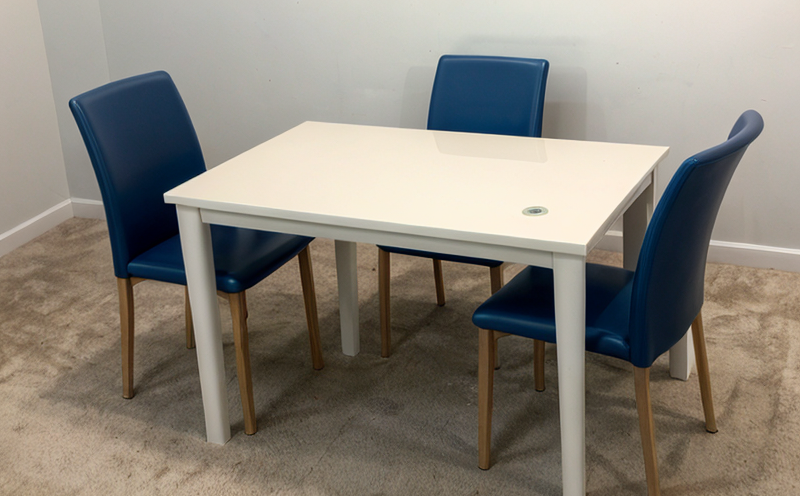NF EN ISO 1183 Density Testing of Furniture Plastics
The NF EN ISO 1183 standard provides a robust framework for measuring the density of plastics used in furniture and interior applications. This method is particularly relevant as it ensures that the materials selected for manufacturing are consistent with international standards, thereby enhancing product quality and safety.
Plastics used in furniture must meet stringent requirements to ensure durability, aesthetic appeal, and environmental friendliness. The NF EN ISO 1183 density test plays a crucial role in this context by providing accurate measurements that help manufacturers adhere to these specifications. This process involves precise specimen preparation, accurate weighing of the sample under controlled conditions, and careful measurement of volume using displacement methods.
The standard specifies detailed procedures for testing both solid and foamed plastics, which is essential given the variety of materials used in furniture manufacturing. The test results are critical for quality control, ensuring that products meet design specifications and regulatory requirements. Moreover, this method supports sustainability goals by enabling manufacturers to select the most appropriate plastic types that balance performance with environmental impact.
Accurate density testing is vital not only for ensuring product quality but also for meeting international standards like NF EN ISO 1183. This standardization enhances trust among consumers and regulatory bodies, as it guarantees consistent results across different manufacturers and regions. The test procedure outlined in the standard ensures that each sample undergoes identical conditions, leading to reliable density measurements.
The precision achieved through this testing method is particularly important for furniture manufacturers who rely on plastics for aesthetic and functional purposes. For instance, foamed plastics used in cushioning materials must have specific densities to ensure comfort and support while remaining lightweight. Similarly, solid plastic components like legs or frames require accurate density values to maintain structural integrity and appearance.
Understanding the nuances of NF EN ISO 1183 is essential for anyone involved in furniture design and manufacturing. By adhering to this standard, companies can produce high-quality products that meet international standards, ensuring customer satisfaction and regulatory compliance.
Benefits
- Consistent Quality: Ensures uniformity in material density across different batches of plastic used in furniture manufacturing.
- Regulatory Compliance: Helps manufacturers meet international standards and regulatory requirements, enhancing market access.
- Product Performance: Accurate density measurements contribute to better product performance by ensuring optimal design parameters are met.
- Sustainability: Supports the selection of plastics that balance performance with environmental considerations.
International Acceptance and Recognition
The NF EN ISO 1183 standard is widely recognized in numerous countries, including those within the European Union, where it forms part of the harmonized national standards. Its international acceptance ensures that test results are valid across different regions, fostering global trade and collaboration.
By adopting this standard, manufacturers can demonstrate their commitment to quality and reliability, which is particularly important for export markets. The standardized approach also facilitates communication between suppliers and buyers, reducing misunderstandings and improving efficiency in the supply chain.
The widespread adoption of NF EN ISO 1183 underscores its significance in ensuring that furniture plastics meet the highest international standards. This recognition contributes to consumer confidence, as it indicates that products are produced using reliable methods and materials.
Use Cases and Application Examples
| Use Case | Description |
|---|---|
| Cushion Design | Determining the appropriate density of foam used in cushions to ensure optimal comfort and support. |
| Laminate Flooring | Maintaining consistent material density for aesthetic uniformity in laminate flooring products. |
| Plastic Edges and Trim | Ensuring the correct thickness of plastic edges used as trimmings in furniture to enhance durability and appearance. |
| Bench Seats | Guaranteeing the appropriate density of foam or solid plastics used for bench seats to ensure comfort, strength, and longevity. |
The NF EN ISO 1183 standard is particularly useful in these scenarios where precise measurements are critical for achieving desired product characteristics. By adhering to this standard, manufacturers can consistently produce high-quality furniture plastics that meet both functional and aesthetic requirements.





